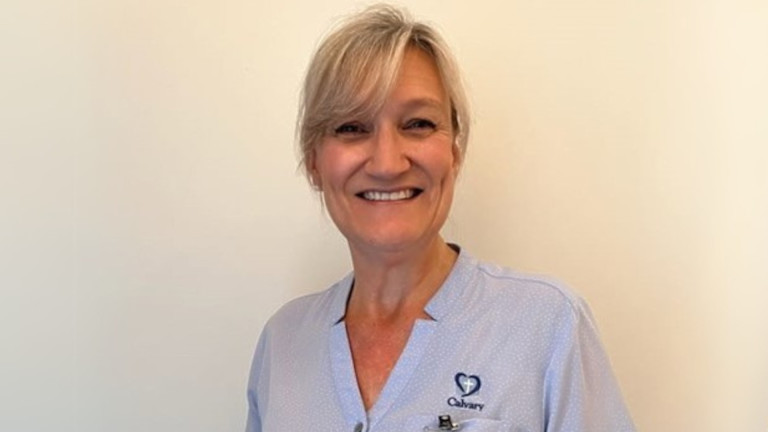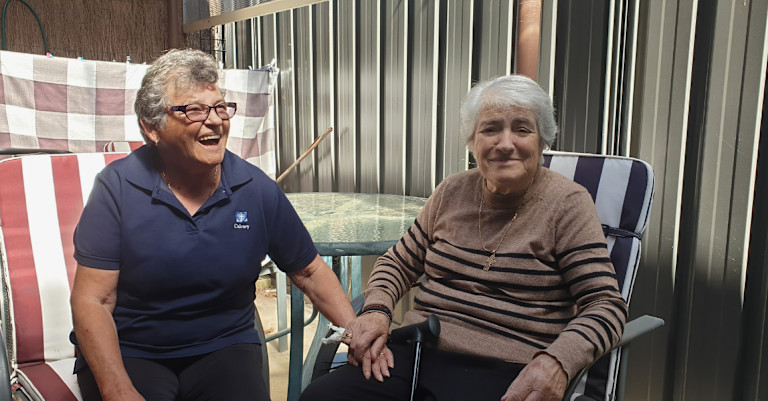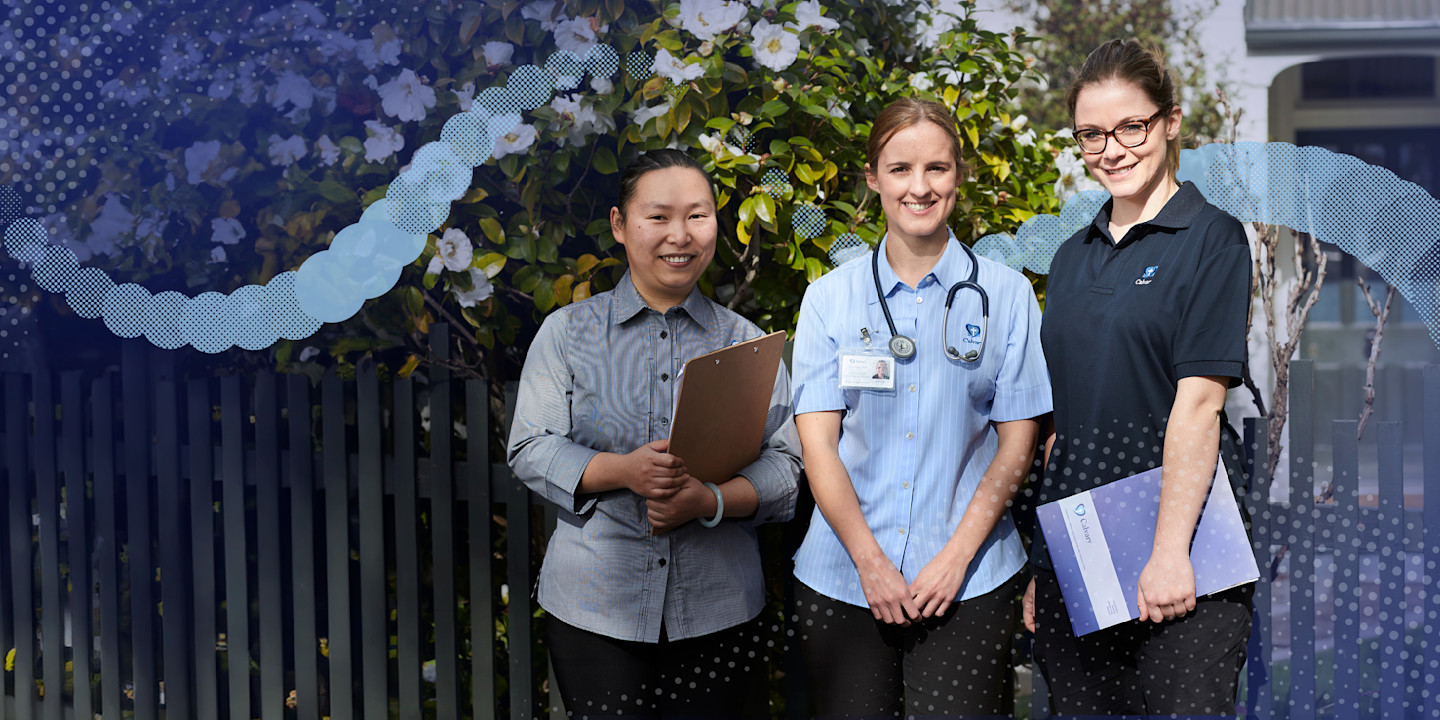
Home Care
If you need help at home, we'll make sure it doesn't feel like help.
Helping you live independently at home.
At Calvary, we have been supporting people in their own homes and communities for over thirty years. We recognise that lifestyle and wellbeing are important and balance your care by co-designing Home Care Package plans that support both your day-to-day lifestyle needs and your health and well-being needs.
We deliver a range of home care services including aged care, disability and other support services that enable independence, improve social connections and promote positive health and well-being.
Need assistance?
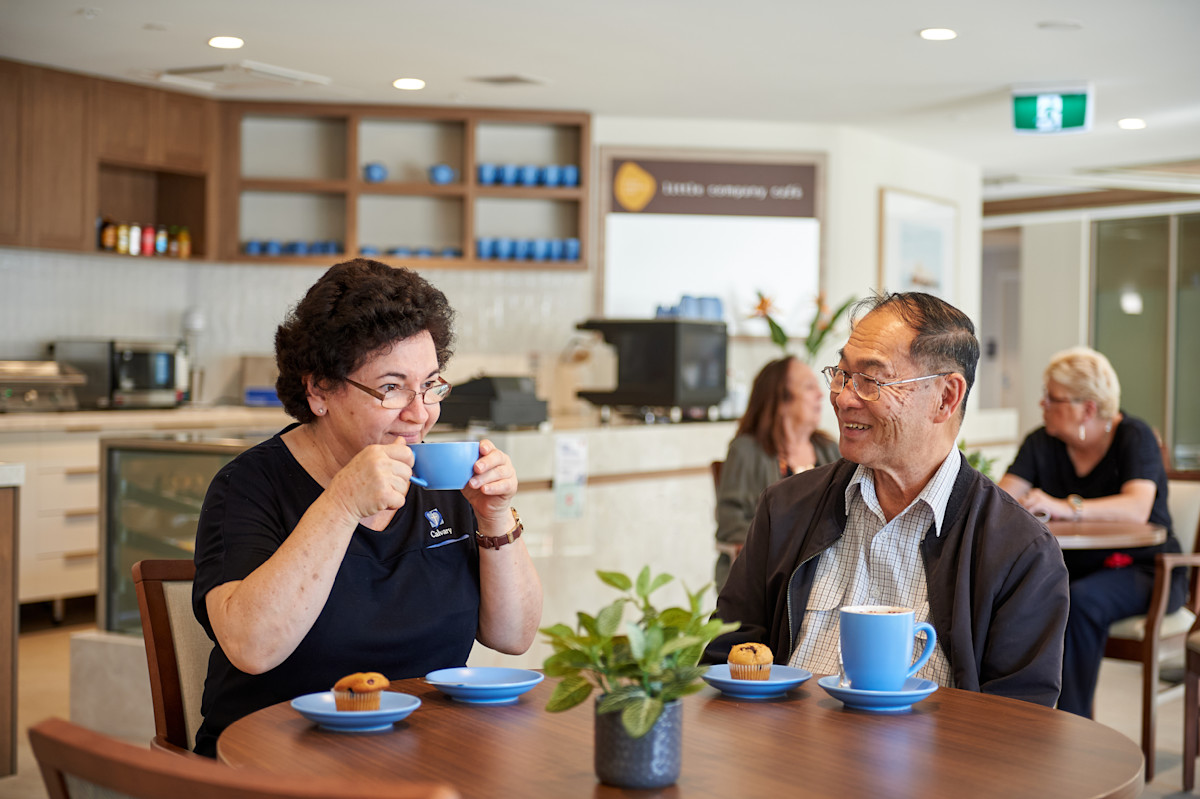
Supporting your health and wellbeing at home
Home Care Services
Explore over 1,000 services and discounted products available to Calvary clients, from help around the house to high-level nursing care in the comfort of your own home.

Disability support
We provide a range of services to support children, adults and older people with a disability to live independently and get actively involved in their local community.
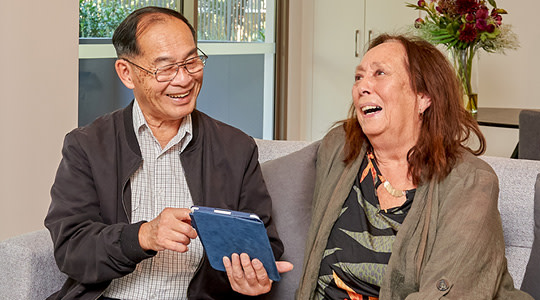
Navigate funding with our support
Understanding fees
We understand that exploring and assessing home care and understanding costs can become a little overwhelming – we are here to help you to prepare.

